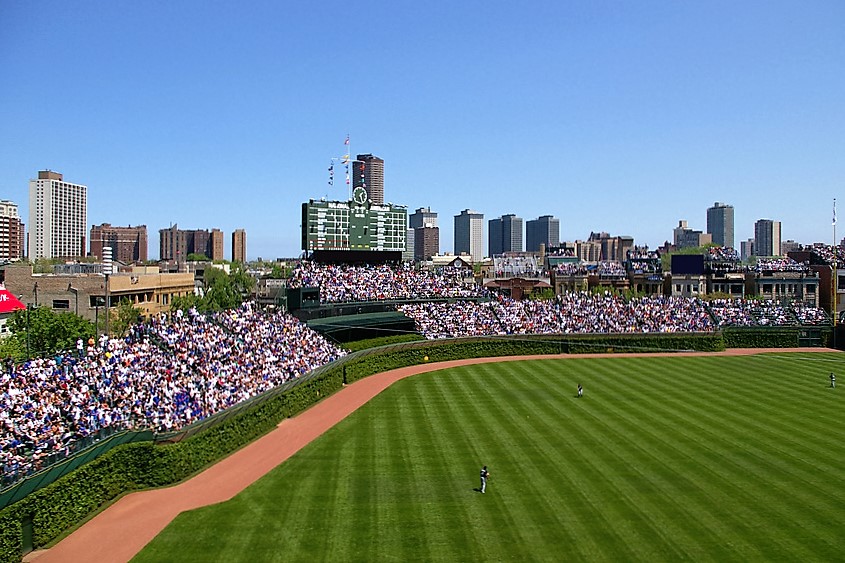The World Series of Security: Protecting the National Pastime
As the last days of October are upon us, the Fall Classic—otherwise known as the World Series—has begun. And for the first time in 71 years, my favorite professional sports team, the Chicago Cubs, are participants. The Cubs and their opponents, the Cleveland Indians, represent the longest championship drought with 108 and 68 years respectively. While many people are watching lightheartedly, the security professional in me understands the World Series is about more than just baseball. It is a major international event with the eyes of the world watching, including possibly those of people with intent to do harm.
From the perspective of a security professional, I am thinking about the various disciplines that are required to help ensure safety, such as an event security plan, crowd control measures, emergency preparedness policy, and civil disobedience tactics. The planning and preparation for an event of this magnitude cannot only focus on the ball park, but also need to address the extended area around the venue. To emphasize my point, the City of Chicago in an unprecedented move, is prohibiting access to this area unless you are a resident or have a ticket to the game.
It’s Better to Be Preventative Than Reactive
By employing a prevention-oriented methodology, security personnel can minimize the potential risk confronting a World Series while protecting the brand of the event. They must first identify all threats and vulnerabilities associated with protecting the venue, individuals, and operations. Prevention-oriented security planning and risk management for significant events is a multi-faceted, highly detailed, continuously changing process based on absolute control of the environment. You need a disciplined and comprehensive approach to screen and control all people, vehicles, services, and equipment seeking access to the stadium.
Plan for the Worst—Hope for the Best
The event security plan needs to account for access control, security, safety, and enforcement of the policies and procedures that discourage unlawful activity both INSIDE and OUTSIDE the venue. As one of the main requirements, your security plan must clearly demonstrate succinct and measurable processes to safeguard all assets, including the people, event, and venue. It is equally important to incorporate crisis management into the security plan and have specific guidelines to address all hazards, such as a field intrusion, power outage, or intruder. Coordination with the public sector is also a must, including contingency operations, emergency management, and incident response, to ensure that the event participants, as well as the attendees, are not exposed to risk.
Nobody Goes There Anymore, It’s Too Crowded
Baseball legend Yogi Berra reportedly once said, “Nobody goes there anymore, it’s too crowded.” If you’ve been watching news coverage of the playoffs, you’ve seen the crowd of fans converging on Wrigleyville, the neighborhood around the ballpark. When you have large numbers of people in a limited space, the potential for crowd control issues, civil disobedience, property damage, and public intoxication increases. Examples of specialized units, local resources such as paramedics, riot police, and mounted patrol are called upon to incorporate into a holistic security posture to protect not only the venue, but also the people who do not have access to the event.
We’re Going To Party Like It’s 1908
History has taught us when a professional sports team wins a world championship we might witness a few incidents of overzealous celebration. Some of this fervent revelry has resulted in burning vehicles, vandalized stores, and physical altercations with police. The lessons learned are that security and law enforcement need to address possible incidents before, during, and after the event. Proper planning includes strategies for crowd dispersion, mass arrests, detention facilities, judicial processing, and temporary housing. Because local resources might not be able to address these scenarios, mutual aid agreements between municipalities are formalized to provide additional manpower, vehicles, specialized equipment, and office space.
We Can Strengthen Your Bench
Do you have the resources, staffing, and expertise to plan, prepare, and implement a holistic security strategy for a large-scale event—or the “World Series” within your organization? The Lake Forest Group offers insight acquired through decades of engagements providing protective security for organizations in the private sector such as Major League Baseball (MLB), the National Football League (NFL), the National Basketball Association (NBA), professional golf, horse racing, hotels, resorts, casinos, and gaming. We provide the necessary insight and hands-on advice that lead to tangible results—and help to ensure the safety of your constituents. Contact me at [email protected] or 312.515.8747 to find out how we can address your particular security challenge—or share this blog post with someone who wants to improve their security program.

